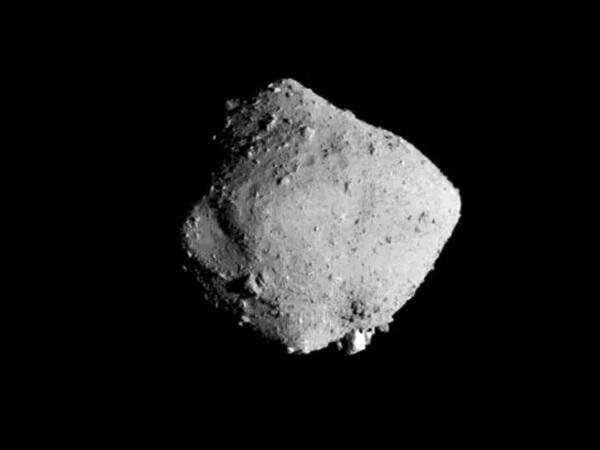Japan's space agency is hoping to make the samples collected by its Hayabusa2 space probe from an asteroid recognized as standard reference material for international research, sources familiar with the matter said Tuesday.

Photo courtesy of Japan Aerospace Exploration Agency (Kyodo)
A research team including the Japan Aerospace Exploration Agency is considering the establishment of a new organization as soon as this summer that would specialize in analyzing and releasing the composition data, the sources said.
"We may be able to produce a global standard for researchers across the world. We hope to provide them in the best form," said Tomohiro Usui, a professor at JAXA's Institute of Space and Astronautical Science.
In December 2020, a capsule that had been carried on a six-year mission by Hayabusa2 delivered 5.4 grams of surface material to Earth from the Ryugu asteroid, located over 300 million kilometers away.
The standard reference material for the solar system is primarily made up of meteorites called CI chondrites, which have undergone aqueous alterations upon entering the Earth's atmosphere.
In contrast, the sands and stones from the Ryugu asteroid were retrieved in an airtight container and may hold clues to the early days of the solar system.
The new organization is expected to use the latest technologies to also analyze samples brought back by the U.S. spacecraft OSIRIS-REx in 2023, as well as CI chondrites stored in museums, with the goal of better characterizing meteorites and assessing the composition of celestial bodies outside the solar system.




